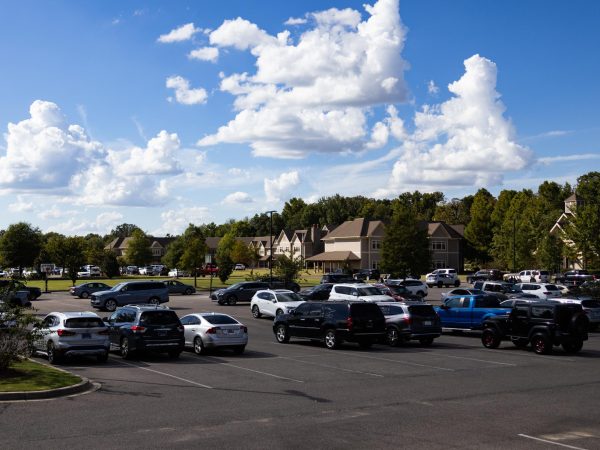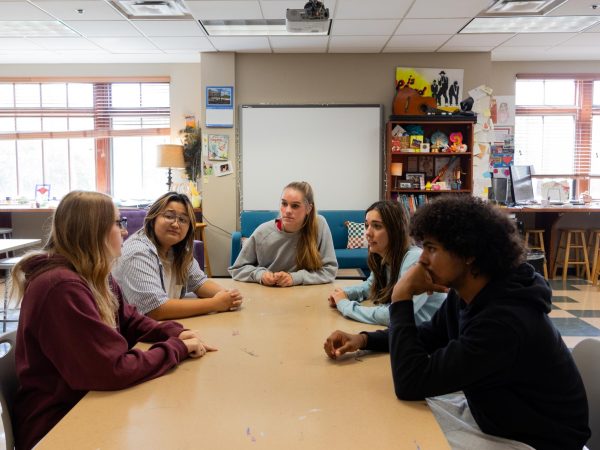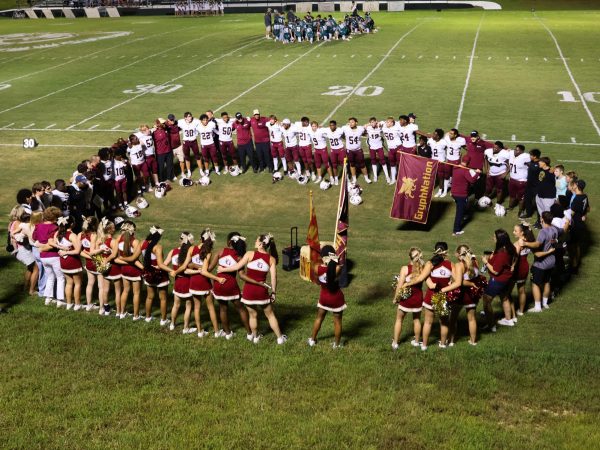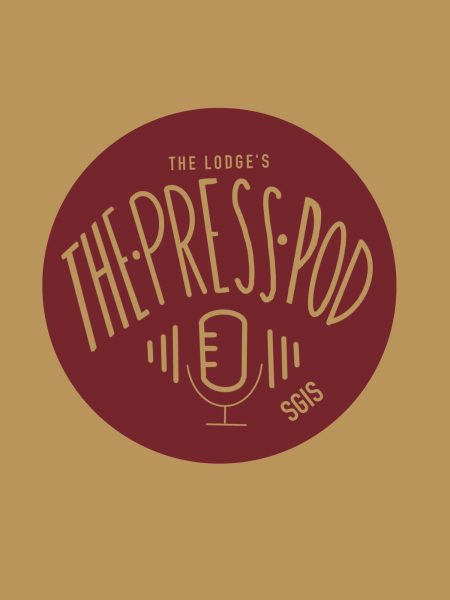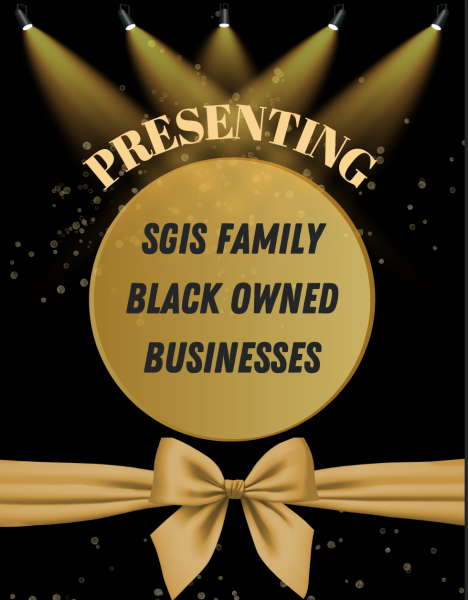Technology upends the music industry
The digital revolution has upended many industries but none more than the music industry.
“It’s changed a lot and I feel like it’s changing everyday,” Wil Reeves, owner of Centro Cellar Studio in Columbia, said.
For a large part of the 20th century, recording studios relied on analog technology, which recorded sound waves onto magnetic tape. The tape could be cut and arranged to produce songs. The creation of more advanced computers made digital recordings, which translate sound waves into computer data, more common. However, this new production format has caused controversy among members of the music industry.
Some argue that digitally-produced music’s sound is inferior to music produced using traditional analog methods.
“It took a long time for the recording studios who were completely recording via analog … to come around to this ultra-clean format,” Reeves said. “Even today, there are still a lot of people that complain that the digital doesn’t sound as good as the analog.”
Despite the criticism, the ease of production has enabled an influx of new artists to start creating music and find their own sound.
“There’s something about people just being able to work on their own and experiment,” Reeves said. “It’s changed the industry a lot in that you have all these people recording themselves and making music that’s just entirely unique and that’s a big deal.”
While algorithms exist to replicate the sound fluctuations of analog equipment when recording with digital equipment, some producers and musicians, including Pierce Porterfield, a Columbia-based musician and general manager of KCOU radio, prefer to utilize digital equipment to create sounds that could not be achieved on analog equipment.
“You can sort of make (digital music) your own sound rather than try to obtain a sound from the past,” Porterfield said. “If I’m working at a computer, I kind of want to make it sound like I’m working at a computer. I think it’s more of a statement.”
Regardless of its effect on the sound produced, digital production has greatly eased entry for new musicians, enabling artists to begin creating music for less money.
“I think a lot of people kinda have to approach it in whatever is the most realistic means,” said Jon Hadusek, a member of the Columbia band Ripped Genes. “I don’t have the money to pay a studio engineer or rent out a studio, so a lot of stuff ends up being more lo-fi and home recorded.”
Once artists start creating music and gain a following, they often begin performing live shows, an aspect that has been greatly affected by technological advancements, including social media.
While some promoters continue to use more old-school methods of booking, most want a bit more than that.
“When you want to book a show out of town, you have to send an email to the promoter,” Hadusek said. “They want links to your social media pages. They want links to your music online. They want press releases or articles written about you. They want content. And if you don’t have that, it’s really hard to book a show.”
In addition to his work as an artist, Hadusek is a concert promoter for Cafe Berlin in Columbia yet chooses to book shows in a way that has become slightly outdated since the rise of social media.
“In Columbia, booking at Cafe Berlin, any time anyone sends me their music, I always listen to it and would hopefully want to book them on the show,” Hadusek said. “I will if I like it, and I think other people will like it.”
While social media sometimes plays a role in booking shows, it has also helped artists gain exposure and connect with fans.
Columbia artist Shaun Toston, who goes by the stage name Sergio Slayer, has experienced more exposure since the expansion of internet usage and social media.
“When I started, it was just word-of-mouth because the social media and internet thing hadn’t really blown up, so now I promote myself mainly through social media, through my Instagram and my Facebook music pages,” Toston said. They’ve “helped tremendously in that aspect to gain more followers, fans, or supporters.”
Porterfield appreciates the ability to connect with his fans and other musicians via Twitter and Instagram.
“When I like an artist, I go follow them on Twitter immediately, like when there’s someone I’ve never heard of, so I think I need to be a person you would care about following on Twitter,” Porterfield said. “I also like Instagram and Twitter as outlets to release music without fully releasing it. If you have a minute of a song, you can just put it in a little video, and it feels like, ‘oh, I need to get that out there,’ and then I don’t have to release it fully.”
While Porterfield and Toston believe the internet has helped propel their music further into the public eye, Hadusek believes having to maintain social media accounts has redirected musicians’ focus from music to publicity.
“It’s actually kind of discouraging in certain ways because you almost have to have an Internet presence to be an active musician,” Hadusek said.
While Hadusek believes having a social media presence is necessary, he does caution against focusing too much on fame.
“It’s kind of a give and take,” Hadusek said. “You don’t wanna get too distracted by that fake publicity front, but you kind of have to put stuff up on the internet.”
With the Internet making it much easier for artists to put their music out for everyone to see, they are all taking advantage of it. Musicians use audio sharing services like Soundcloud to reach potential listeners. In fact, in December of 2012, co-founder of Soundcloud, Alex Ljung, announced that “over ten hours are uploaded every minute.”
While some musicians believe that the massive influx of music online does more harm than good, 17-year-old Maddie Harmon, who has played in several bands, sees the opposite.
“It’s kinda easy to get lost in all the different bands and artists, so I think it could harm you,” Harmon said. “But if you promote yourself on social media, through Instagram, and you put it in your website tag line that could help a lot. It’s really just promoting I would say.”
Toston has a huge appreciation for how most artists get their start since he got his start before the rise of the internet.
“I definitely praise the internet for that, for letting bands or artists that you normally would not hear of get more exposure, definitely love it,” said Toston.
While some believe technology has caused an overabundance of music in the industry and curtailed musician-fan interaction, for Porterfield, the pro subscription to SoundCloud has helped him connect with fans.
With a pro account, artists have the ability to see how many times a fan listens to one of their songs, though they are only given access to the fan’s username.
“You’ll be like, ‘This person’s played this song 50 times this week,’ and it’s like ‘Whoa, this must be their favorite song. That’s really cool.’ So I follow them and then they’ll follow me, and sometimes they’ll like message me and get a conversation going,” Porterfield said. “It’s interesting. There are a few people that really love your music a lot and then just talking about it is interesting.”
And that change in the way we consume music has been monumental.
According to the Recording Industry Association of America, CD sales reached their height in 2000 when CD companies made a total revenue of around $13 billion. By 2016, that number plunged to a little over $1 billion, marking a 91 percent revenue decrease over the 16-year period.
Less than five years after Apple Inc. released the iPod in 2001, Pandora Media revolutionized the music industry when it released its app, Pandora, the first free online music streaming platform. Other streaming apps, including Spotify, which was released in 2008, soon followed.
More than a decade after online streaming began, Pandora and Spotify had more than 80 million and 140 million users, respectively, according to a 2016 Pandora Annual Report and an official 2017 Spotify news release.
While the digital revolution has upended the music industry, Jon Hadusek thinks it’s for the better.
“I think it’s definitely opened that door for a lot of musicians who may have been discouraged about sharing their music, but they’ve can kinda put it up online more in an anonymous sense and have it exist on its own on the cloud,” Hadusek said. “If they would choose to pursue a career in music, they could do all the rest of that stuff to get there and get known.”
*This article was created by Editor-in-Chief Carolyn Lane alongside three high school journalists while in attendance at University of Missouri – Columbia’s Missouri Urban Journalism Program.*


